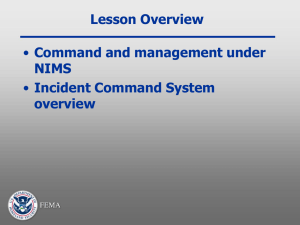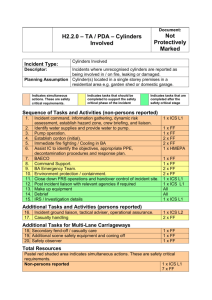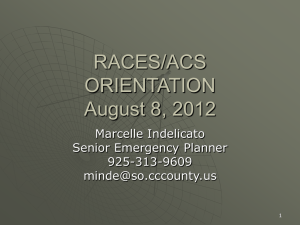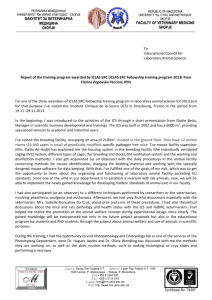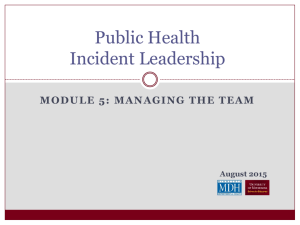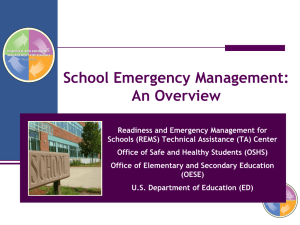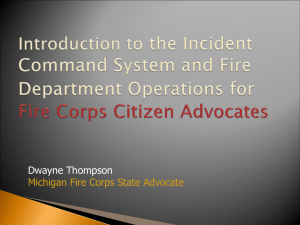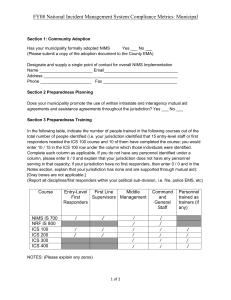Unit 1
advertisement
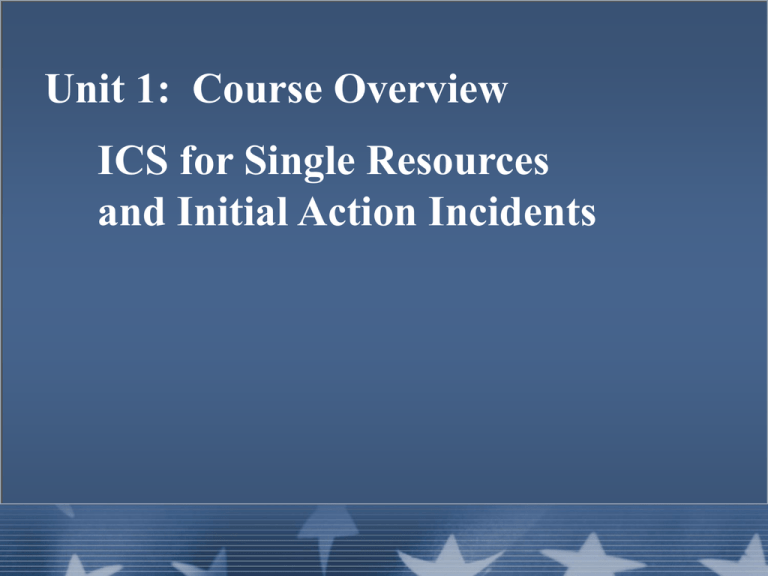
Unit 1: Course Overview ICS for Single Resources and Initial Action Incidents Course Logistics Course agenda Sign-in sheet Housekeeping: Breaks Message and telephone location Cell phone policy Facilities Other concerns Unit 1: Course Overview Visual 1.2 ICS-200 Course Objectives Describe the Incident Command System (ICS) organization appropriate to the complexity of the incident or event. Use ICS to manage an incident or event. This course is designed to enable personnel to operate efficiently during an incident or event within the Incident Command System. This course focuses on the management of single resources. Unit 1: Course Overview Visual 1.3 Student Introductions Name, job title, and organization Overall experience with emergency or incident response ICS qualifications and most recent ICS experience Unit 1: Course Overview Visual 1.4 Expectations What do you expect to gain from this course? Unit 1: Course Overview Visual 1.5 Instructor Expectations Cooperate with the group. Be open minded to new ideas. Participate actively in all of the training activities and exercises. Return to class at the stated time. Use what you learn in the course to perform effectively within an ICS organization. Unit 1: Course Overview Visual 1.6 Incident Command System (ICS) Why Use ICS? To ensure effective incident management. ICS is a management system, not just an organizational chart. Unit 1: Course Overview Visual 1.7 Activity: ICS Features Review Instructions: 1. This course builds on what you learned in I-100 about ICS features. Let’s see how much you remember! 2. Your team will have 3 minutes to try to list as many ICS features as you can remember. Hint: There are 14 features. 3. Select a spokesperson. Unit 1: Course Overview Visual 1.8 ICS Features: Review Common terminology Modular organization Management by objectives Reliance on an Incident Action Plan (IAP) Chain of command and unity of command Pre-designated incident locations and facilities Resource management Information and intelligence management Integrated communications Transfer of command Unified command Accountability Manageable span of control Deployment Unit 1: Course Overview Visual 1.9 Course Structure Unit 1: Course Overview Unit 2: Leadership and Management Unit 3: Delegation of Authority and Management by Objectives Unit 4: Functional Areas and Positions Unit 6: Organizational Flexibility Unit 1: Course Overview Unit 7: Transfer of Command Unit 5: Briefings Unit 8: Course Summary Visual 1.10 Successful Course Completion Evaluation includes: Participate in unit activities/exercises Achieve 70% or higher on the final exam Complete the course evaluation Unit 1: Course Overview Visual 1.11
